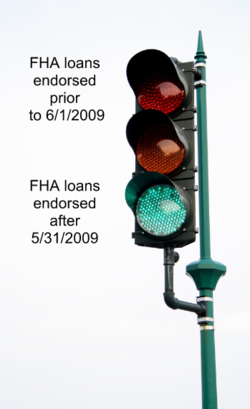HARP 2.0 (Home Affordable Refi Program) was revamped late last year to remove loan to value restrictions allowing more underwater home owners to refinance. So you may be wondering, why should you need to ask your mortgage originator if they have any loan to value restrictions with the HARP 2 program. In two words: UNDERWRITING OVERLAYS.
HARP 2.0 overlays are underwriting guidelines that are in addition to Fannie Mae or Freddie Mac’s program guidelines. Underwriting overlays are mandated by the bank and/or lender. For example, as a correspondent lender, I work with several big banks, wholesale lenders and I can broker loans too. Currently most of the banks I work with have underwriting overlays that limit my maximum loan to value with HARP loans anywhere from 95 to 105% depending on the bank and scenario. Thankfully I also work with lenders who offer unlimited loan to values with no underwriting overlays for HARP 2.0, as the program was intended to be.
Before you submit a loan application for HARP 2.0, ask the mortgage originator what is the max loan to value they can lend on. If they are limited to 105% and your loan to value exceeds 105%, find another mortgage originator. HARP guidelines have an 105% ltv limit on adjustable rate mortgages and loans with a term greater than 30 years.
If you have PMI or LPMI, ask your mortgage originator if they are accepting transferred pmi BEFORE you start your application. Many lenders are not accepting HARP loans with existing pmi or lpmi (lender paid mortgage insurance). If you’ve been told this by your bank, seek another lender.
There are some scenarios where because of certain “credit enhancements” a loan may not be available for a HARP 2.0 – it’s more the exception than the norm. And I’m hoping when (if) HARP 3.0 becomes available, those loans are allowed to take advantage of this program.
If your LO has told you that an appraisal is required, get a second opinion. Appraisal waivers are not automatically provided on all HARP 2.0 loans. It is not determined until your loan is ran through Fannie Mae or Freddie Mac’s automated underwriting systems (DU or LP) whether or not an appraisal is required. Sometimes the smallest detail may impact whether or not an appraisal waiver is granted, such as how your address is entered into the AUS. You many not need to spend money on the appraisal and it’s possible that you may receive an appraisal waiver at a later date as the valuations that Fannie and Freddie use change.
Because of the increased refi volumes created by expanded guidelines with HARP 2.0 and the reduced mortgage insurance now available for some FHA streamlined refi’s, banks and lenders are “cherry picking” what refinances they want. One way of doing this is by creating underwriting overlays. Due to these increased volumes, large banks and credit unions have hired on loan originators (or “mortgage tellers”) who may lack experience in the mortgage industry. (Remember, LO’s who work for banks or credit unions are not required to be licensed per the SAFE Act). They’re simply hired to fill out an application and are not savvy to actual guidelines.
I’ve been helping home owners who have been told by a mortgage originator that because they have pmi or their loan to value is 108%, that they don’t qualify for HARP 2.0 when actually, they do. I’m not sure if LO’s don’t read Fannie/Freddie guidelines or if because they cannot offer it, they prefer to portray certain features are not available when what they should do is convey that they do not have access to those features (such as ltv’s over 105%), however another lender may.
If you’re considering refinancing or buying a home located anywhere in Washington, I’m happy to help you. Click here if you would like me to provide you with a mortgage rate quote.
EDITORS NOTE: Since this was published, most of the banks we work with as a correspondent have pulled back their LTV guidelines to 105%. Wholesale lenders where we can broker have also made changes to guidelines or policies or have stopped accepting applications due to extreme volumes. Hopefully Congress will pass HARP 3.0 to help the Home Affordable Refi become more available.








